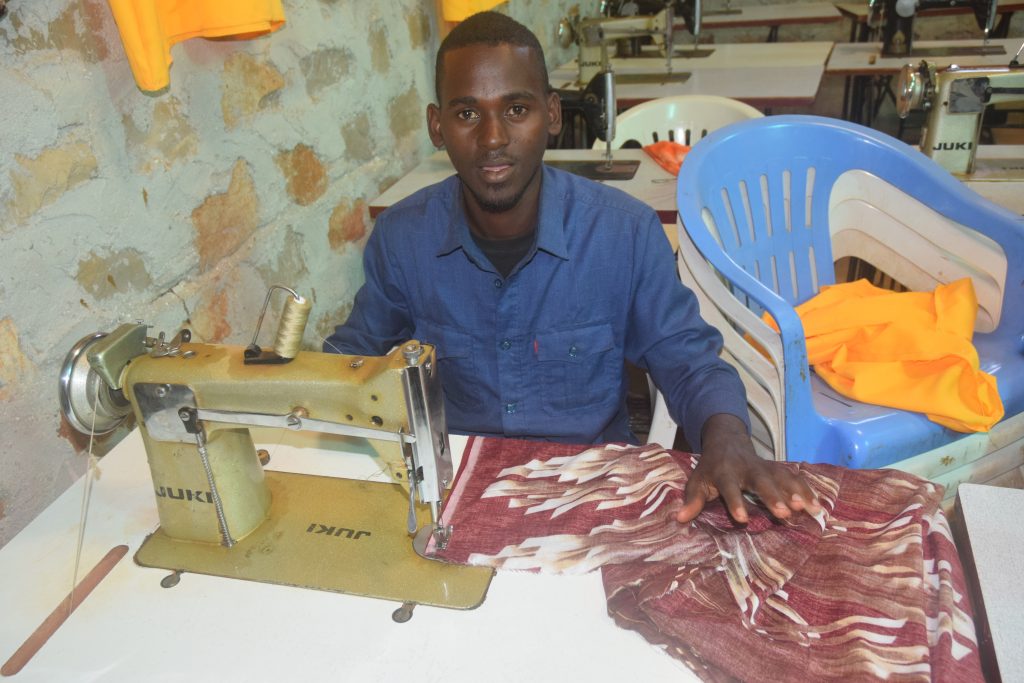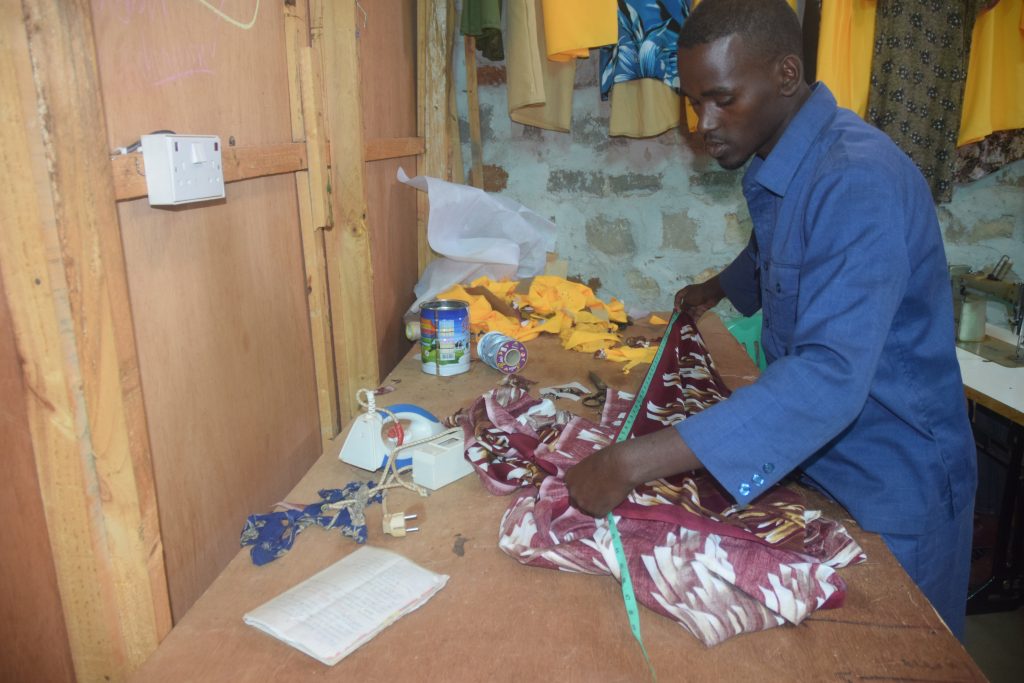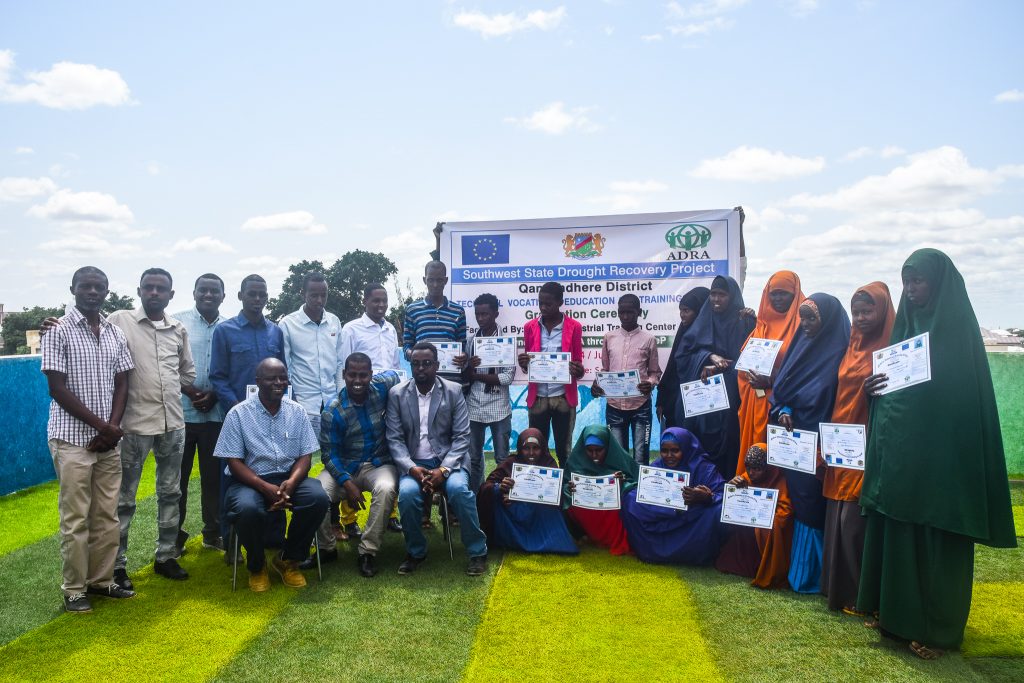
Ibrahim Daud Ali, 28 was once a farmer. His livelihood was dependent on the crops he got after every planting season. But things began to change when rains became erratic until they failed altogether. With that, the crops also failed. And that marked the beginning of his end. With no tangible skills, he took up any job that could sustain him and his family until he was selected as one of the Technical and Vocational Education and Training (TVET) students.
“The village was involved in selecting those who were most in need to be part of the TVET training. I chose tailoring because it will help me start a business in my village and have a steady income to support my family,” he declares.
For four months, he dedicated himself to learning all that he could concerning tailoring.

“We were taught not only tailoring but also how to price our clothes and make a profit at the end of the day. For instance, children below 4 years, we charge US 1.5 dollars. Those above 5 years we charge, US 3 dollars. The price is also different for men and women. Once I set up my business this is how I will price my clothes.”
Ibrahim is thankful for the opportunity that he was given.
“I am grateful for all the people who were involved in selecting those who are less privileged in the society and see them gain some skills.”
With gratitude, he wants to pass forward the skills he has learnt to those who were not selected.
“The youth who are without skills in my village are many and most of them could not make it for the training. The least I can do, is train some of my friends to learn what I learnt and enable them start their own business as well.”
His one request, however, is one; the number of students to be increased so that more youth can be accommodated.
Ibrahim was among 20 students from Qansadhere who graduated in July after an intense four-month training in various market relevant skills. The skills included tailoring, tie & dye, beauty and salon.

ADRA under the Somalia Resilience Program (SomReP) implements drought recovery livelihoods, food security and resilient projects aimed at building community assets and creating safety nets which enables the beneficiaries to withstand the effects of recurring disasters in Somalia. The South West State Drought Recovery project in Qansadhere contributes to improved resilience and increased adaptive capacities for communities’ households in Somalia to protect their livelihoods over continuing shocks.


